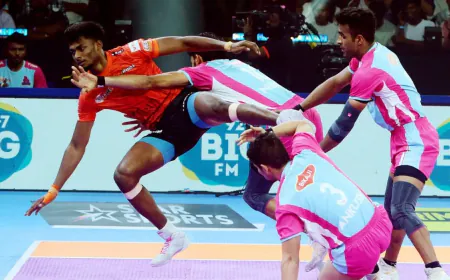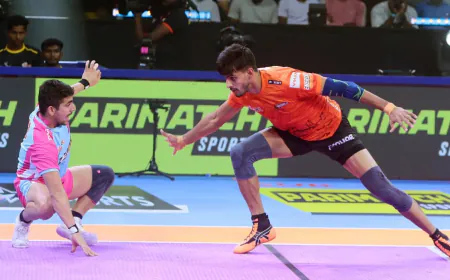Shastri and Ponting Criticize Shami's Injury Management During India's Border-Gavaskar Series Loss
Ravi Shastri and Ricky Ponting slam Mohammad Shami's injury management as India suffers a loss in the Border-Gavaskar Series. Their critiques point out that India has an issue with its player fitness.

India's long-standing dominance of the Border-Gavaskar Trophy came to an abrupt end with a six-wicket defeat to Australia in Sydney. The loss sealed a 1-3 series defeat for India, marking the end of their decade-long stranglehold on the prestigious trophy. Amid the post-match analysis, former cricketing legends Ravi Shastri and Ricky Ponting spoke out about how Mohammed Shami's injury was handled. Both of them believed that if Shami had been part of the squad in the latter half of the five-match series, the course of events would have been different in India's favor.
India, known for their strong pace attack, was without Shami for a significant portion of the series. His absence from the squad raised eyebrows, particularly in light of the team's struggles with their pace department. With the series slipping away, the question on everyone’s mind was whether Shami’s inclusion could have had an impact on the final result.
Former player and ex-coach of India Ravi Shastri said it was disappointing Shami was rested for the games later on but questioned the injury management of the pacer, saying had Shami played, his experience and skill would have probably gotten India those decisive breakthroughs needed. A fierce champion of playing for experience, Shastri stated that it is a very vital reason that saw India fail especially at crucial series deciding matches.
Former Australian skipper Ricky Ponting echoed these sentiments when he said, "He was not in the eleven, Shami would have provided that necessary bit of energy at the bowling unit especially because Australian pitches don't support too many things that these bowlers enjoy". He stressed that Shami, with his speed and capacity to produce swing, would have brought that firepower needed to take on the game during the last leg of the series. The great captain and analyst of the game said Ponting could be using that to exploit the Indians in those weak moments that came.
The Border-Gavaskar series saw India's bowling unit struggle at key moments, with the absence of Shami leaving a noticeable gap. While the likes of Jasprit Bumrah and Mohammed Siraj were consistent, there was a lack of depth in the attack that Shami could have potentially filled. With his ability to bowl long spells and pick up crucial wickets, Shami’s inclusion might have added the required balance to India’s pace attack, which appeared to falter when the pressure mounted.
Several issues were highlighted, which had otherwise been ignored at the earlier stages of the competition. Shastri and Ponting have reflected the wider criticism on the injury management policy of India that, in this case, went against the interest of the team. Leaving out Shami for such a long time created doubts in many fans and experts whether the injury to the pacer was dealt with properly.
It's a landmark win in the Border-Gavaskar Trophy's history, especially since India dominated the competition almost unassailable for more than a decade, but this resilience of the Aussies and challenges on the internal side of the Indian team was potent enough. Moreover, it reflects the injury management and proper squad selection, mainly when the battle is such fierce.
With the series over now, Shastri and Ponting have called for a better approach in terms of handling injuries in tours going forward. According to both of them, it goes without saying that a side needs the best players at the right times to finish the job, as often the outcomes of such series can be dependent upon either one or two individual performances. Shami, in this case, was one of India's most experienced pacers and arguably their biggest miss in the system here.
As India looks into its future tours, lessons learned from this series are likely going to shape team strategies, be it the selection of a squad or the management of injuries. Perhaps the verdict is still out on whether Shami would have been able to change the course of the game in India's favor but the one thing certain was that his absence meant a missing gap within India's bowling while his return could have turned the game completely in India's favor.
The series defeat is a reminder that even the strongest teams can fall as much to a combination of factors: mismanagement of injuries, underperformances on the field, and so on. Here are the insights of Shastri and Ponting that can have a very timely reflection on the challenges faced by the Indian cricket team and the important decisions which finally decided the series outcome.





















































